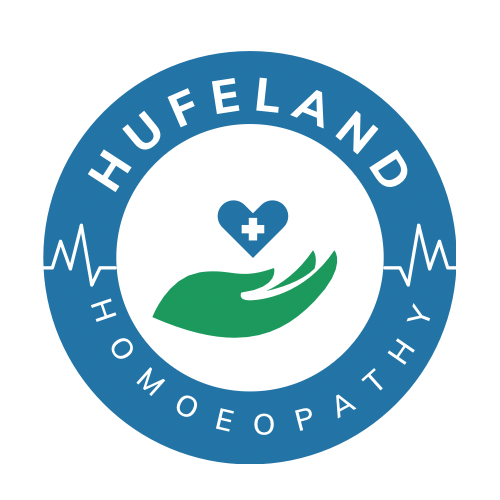- Fathima Roshni N

- Dec 27, 2024
- 4 min read
Updated: Jan 4, 2025
Scabies is a contagious skin condition caused by the Sarcoptes scabiei mite. While it is often associated with intense itching and discomfort, understanding its medical and homeopathic aspects can help in managing and treating this condition effectively.
Understanding Scabies: Pathophysiology and Causes
Scabies occurs when the microscopic mite burrows into the skin, leading to an inflammatory response. The female mite lays eggs in the burrows, generating a cycle of itching and skin irritation. The immune response to these mites is what causes the severe itching associated with the condition. Studies suggest that the mite can survive off the human body for up to 2 to 3 days, which is crucial for understanding its transmission.
Common causes of scabies include:
Direct skin-to-skin contact: Sharing bedding, clothing, or personal items with an infected person can spread the mites easily.
Crowded living conditions: Environments such as nursing homes, daycare centers, and crowded households facilitate the transmission.
Immunocompromised states: Individuals with weakened immune systems may be more susceptible to severe scabies infections.
Recognizing the Symptoms of Scabies
The symptoms of scabies typically appear within 2 to 6 weeks following the initial exposure to the mite. However, in individuals who have had previous scabies infections, symptoms may develop within one to four days. Key symptoms include:
Intense itching: This is often worse at night and may lead to scratching and secondary infections.
Rashes: You may notice small red bumps, blisters, or sores on areas like the wrists, between fingers, or on the abdomen and buttocks.
Pustules and crusting: In severe cases, scratching can cause crusting and pustules, which can become infected.
Types of Scabies
There are different types or forms of scabies that vary in severity and presentation:
Classic Scabies: This is the most common form characterized by intense itching and typical rash.
Norwegian Scabies: Also known as crusted scabies, this form is more severe and occurs in immunocompromised individuals. It presents with thick crusts of skin that harbor thousands of mites.
Scabies in Infants and Young Children: Infants may have scabies on the scalp and face, which can often lead to secondary bacterial infections.
Prevention Strategies
Preventing scabies involves minimizing direct contact and following hygiene practices. Here are some effective strategies:
Avoid close contact: Limit close physical contact with anyone known to be infected.
Wash bedding and clothing: Regularly wash bed linens, towels, and clothing in hot water and dry them on high heat to kill any mites.
Educate others: Educate family and friends about scabies to ensure they understand the importance of prevention.
Isolate infected individuals: If someone is diagnosed, they should avoid close contact until treated.
Diagnosis and Medical Treatment
Diagnosing scabies usually involves a physician examining the skin and may include:
Skin scraping: A small sample of skin may be taken to check for mites or eggs under a microscope.
Visual identification: Doctors often identify scabies based on the symptomatology and location of the rash.
Medical treatment typically involves topical medications that kill the mites, such as:
Permethrin cream: A first-line treatment applied from the neck down and left on for 8-14 hours.
Ivermectin: An oral medication that is particularly useful for crusted scabies or in settings with high transmission.

Homeopathic Management of Scabies
Homeopathy offers a holistic approach to treating scabies by addressing both the symptoms and the underlying causes. While it is essential to consult a homeopathic practitioner, here are ten commonly used remedies:
Sulphur: Effective for intense itching and redness; useful for those who feel hot and sweaty.
Mercurius: Ideal for cases with oozing sores and a strong urge to scratch.
Ledum Palustre: Beneficial for itchy and swollen areas, particularly where there is a puncture mark.
Sabadilla: Useful for those facing intense itching, especially at night.
Arsenicum Album: Helps with burning sensations, often accompanied by restlessness.
Graphites: Excellent for crusty skin and those with issues of both dry and moist eruptions.
Rhus Toxicodendron: Effective for relief from itching, especially after exposure to cold water.
Natrum Muriaticum: Helpful for those whose skin itches intensely, particularly in the sun.
Staphysagria: Best for cases with emotional stress, often associated with the skin condition.
10. Antimonium Crudum: Ideal for children with crusty skin eruptions and irritability.
It's crucial to consider the individual symptoms and personality of each person for effective treatment. Homeopathic remedies can be used alongside conventional treatments to enhance overall recovery.

Managing Scabies Naturally
Along with homeopathic management, some natural remedies may offer relief:
Tea tree oil: Its antifungal and antibacterial properties may help alleviate itching and irritation.
Aloe vera: Known for its soothing properties, it can reduce inflammation and provide hydration.
Neem oil: Effective in treating skin infections, it has anti-parasitic properties that can be beneficial in scabies cases.
Incorporating these into your treatment plan can provide complementary relief.
Moving Forward with Effective Care
Managing scabies requires a comprehensive approach integrating medical treatments, homeopathic remedies, and preventative measures. Understanding the symptoms, types, and treatment options can greatly enhance the quality of life for affected individuals. If you suspect scabies, consult a healthcare professional for appropriate testing and tailored treatment strategies.
As you navigate the challenges of scabies, keep in mind that both conventional and homeopathic perspectives can play vital roles in managing the condition effectively. By taking a proactive approach, you can alleviate symptoms, reduce transmission, and promote healing.
Stay informed and empowered in your journey towards better skin health!
Disclaimer for Homeopathic Treatment
The information provided regarding homeopathic treatment is for educational purposes only and should not be considered as medical advice. It is important to consult a qualified healthcare professional before starting any homeopathic treatment or making changes to your current health regimen.
Key Points to Consider:
Consultation Required: Always seek the advice of a licensed practitioner for any health concerns or conditions.
Individual Responses: Homeopathic treatments may vary in effectiveness from person to person.
By using homeopathic treatments, you acknowledge that you understand the above points and agree to consult with a healthcare provider for appropriate guidance.


Comments